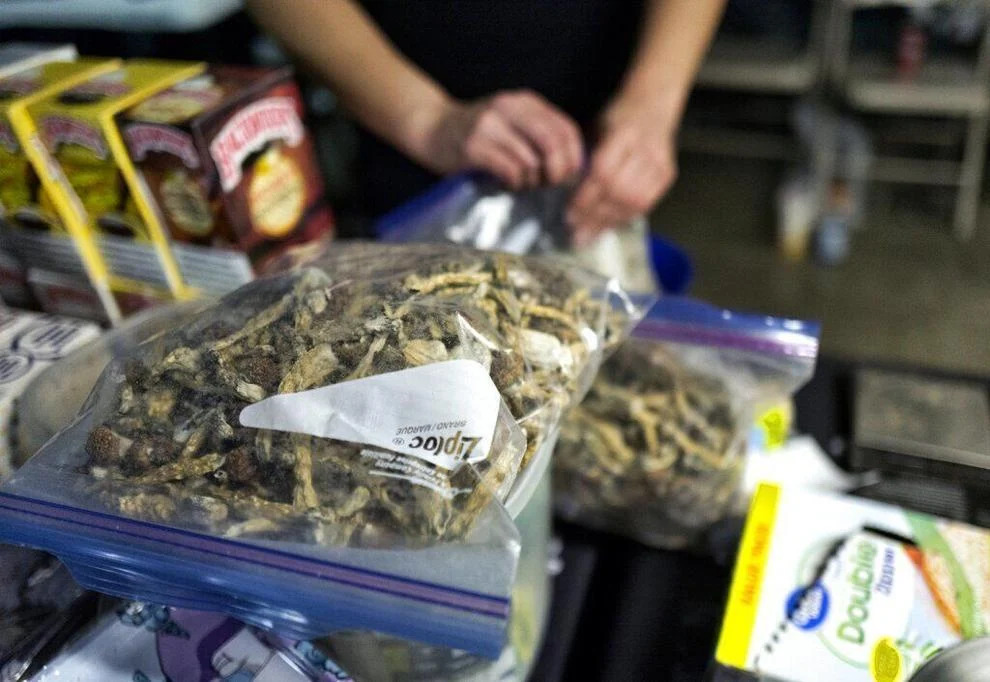An effort to roll out Colorado’s legal psychedelics industry cleared its last major legislative hurdle on Saturday with the House’s passage of Senate Bill 290.
If made law, the bill would help to implement Proposition 122, passed by Colorado voters in November. The ballot measure legalized the “magic mushroom” hallucinogenic compounds psilocybin and psilocin for medicinal use, and decriminalized the personal use, sharing or growing of the compounds and other “natural medicines.”
The bill will next be sent back to the Senate to approve changes made by the House. Then, it will go to Gov. Jared Polis for final consideration to become law.
“I want us to do everything we can to honor the will of the voters,” said bill sponsor Rep. Judy Amabile, D-Boulder. “I want us to move forward with optimism that this is going to make a difference for our state and that it is going to help people who really need help and who haven’t been helped by more traditional medicines.”
The passage of Prop 122 made Colorado the second state in the country to legalize and regulate the market for mushrooms, following Oregon in 2020.
Under the ballot measure, Coloradans 21 years or older can access mushrooms at state licensed healing centers, under rules to be promulgated by the state Department of Regulatory Agencies. SB 290 seeks to move the regulatory authority of the healing centers to the Department of Revenue, which oversees marijuana.
The bill would also limit the size of home grow operations to a 12-foot-by-12-foot area in a locked and enclosed space, and make it a petty drug offense to openly and publicly consume the substances, or to possess or use them at all if under 21 years old.
The House passed the bill in a 45-18 vote on Saturday, following the Senate’s 25-10 approval last week. Lawmakers in both chambers were mostly split along party lines, with all but four Republicans opposing the bill, and all but one Democrat — Rep. Steven Woodrow of Denver — supporting it.
Opponents of the bill largely raised issue with Prop 122 itself.
“What private citizens do behind closed doors is their business,” said Rep. Ron Weinberg, R-Loveland, who voted against the bill. “Why are we trying to have government interference with something that is not currently a problem? We are creating laws that are going to create problems.”
In the Senate, many lawmakers criticized the bill for prohibiting local governments from banning the mushroom healing centers or from enacting more restrictive regulations and penalties. These restrictions were explicitly included in Prop 122, but were denounced by elected officials on both sides of the aisle as violating local control.
Critics also pointed out that Prop 122 passed in a narrow margin, receiving 53.6% approval from voters. Most voters in rural counties rejected the ballot measure.
“I’ll tell you right now, I voted ‘no’ on 122. But nonetheless, a majority of Coloradans voted ‘yes,'” Amabile said in response. “This bill is written to give fidelity to the will of the voters.”
Amabile also defended the natural medicines legalized in Prop 122, saying they “have a lot of promise” in treating people with mental illnesses.
In 2018 and 2019, the Food and Drug Administration granted psilocybin status as a “breakthrough therapy,” accelerating the development and review of using the drug to treat major depressive disorder. New York University researchers also have seen promising results when looking at the effects of using psilocybin to treat alcohol addiction.
Rep. Rick Taggart, one of two Republicans to vote “yes” on the bill in the House, said he supported it because the legislature has to implement the licensure and regulation for healing centers before 2025.
SB 290 pushed the deadline for regulators to begin accepting licensure applications to Dec. 31, 2024 — Prop 122 had set the deadline at Sept. 30, 2024. This means licenses for the healing centers will begin being issued in 2025, and lawmakers have one full legislative session to continue working on any needed bills.
“I’m concerned if we don’t approve this we’re going to be in real trouble in terms of the licensing side of this with our organizations within the state,” said Taggart, R-Grand Junction.
Senators amended SB 290 to clarify that unlicensed practitioners can receive compensation for providing services related to natural medicine, though they cannot sell the substances. Another amendment updated the criminal component of the bill to require that offenders knowingly committed the criminal acts and to only apply to offenses committed on or after July 1. These changes addressed concerns frequently raised during public hearings on the bill.
In the House, lawmakers amended the bill to make the following changes, all of which will need to be approved by the Senate before the bill can be sent to the governor:
- Require that home grow operations be on the grower’s property in an enclosed and locked space
- Clarify that people on parole and probation can use the natural medicines without adverse consequences to their legal cases
- Allow criminal records to be sealed for convictions regarding natural medicines that are now legal
- Require applicants to provide their fingerprints to law enforcement to get a license for a healing center
- Require the state to collect data regarding law enforcement incidents, consumer protection claims, and impacts to health, behavioral health and health care systems regarding the natural medicines
Sponsors of the bill said they expects lawmakers will need to make more adjustments to the state’s new psychedelics industry next session. (Full Story)

